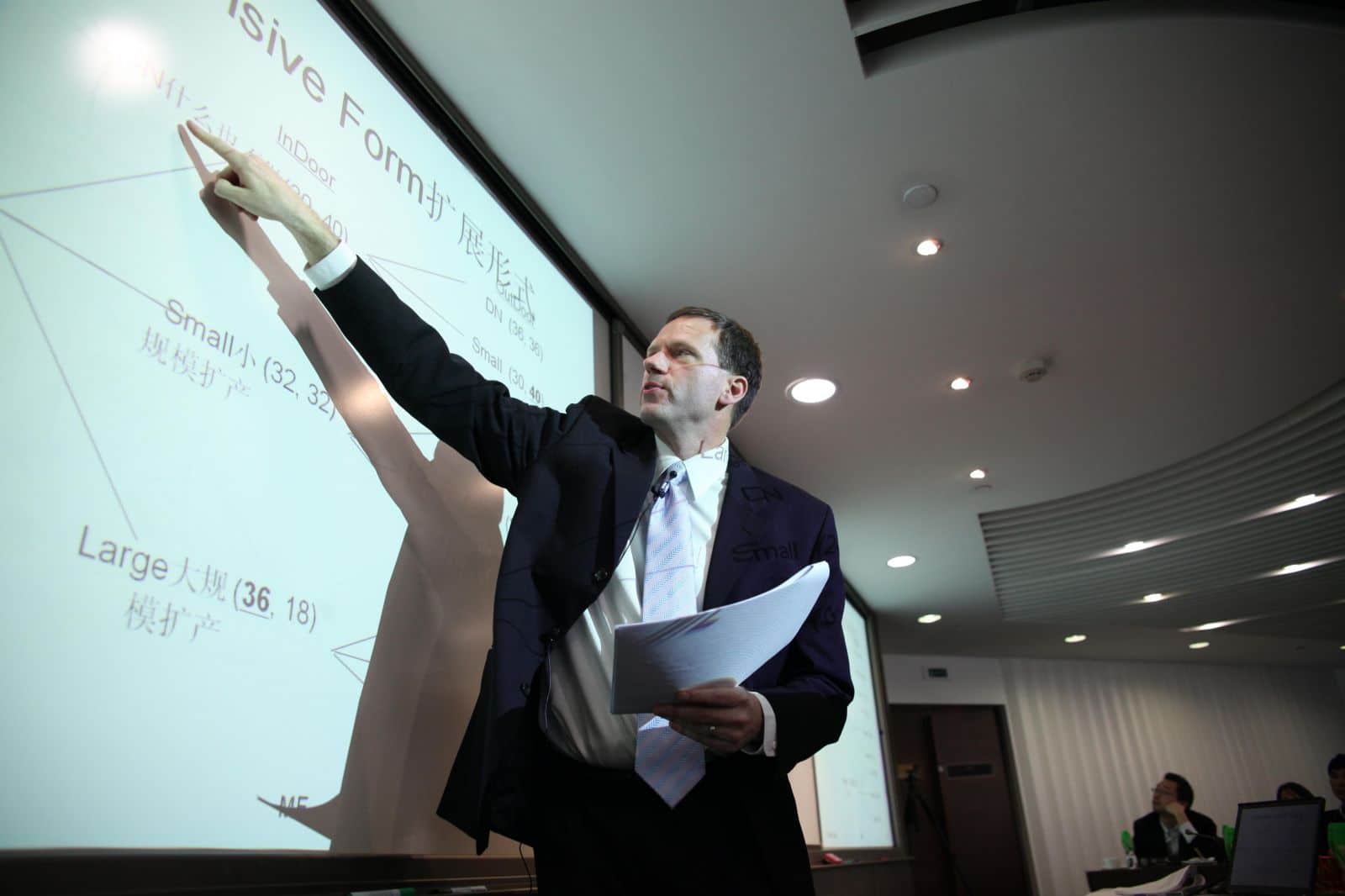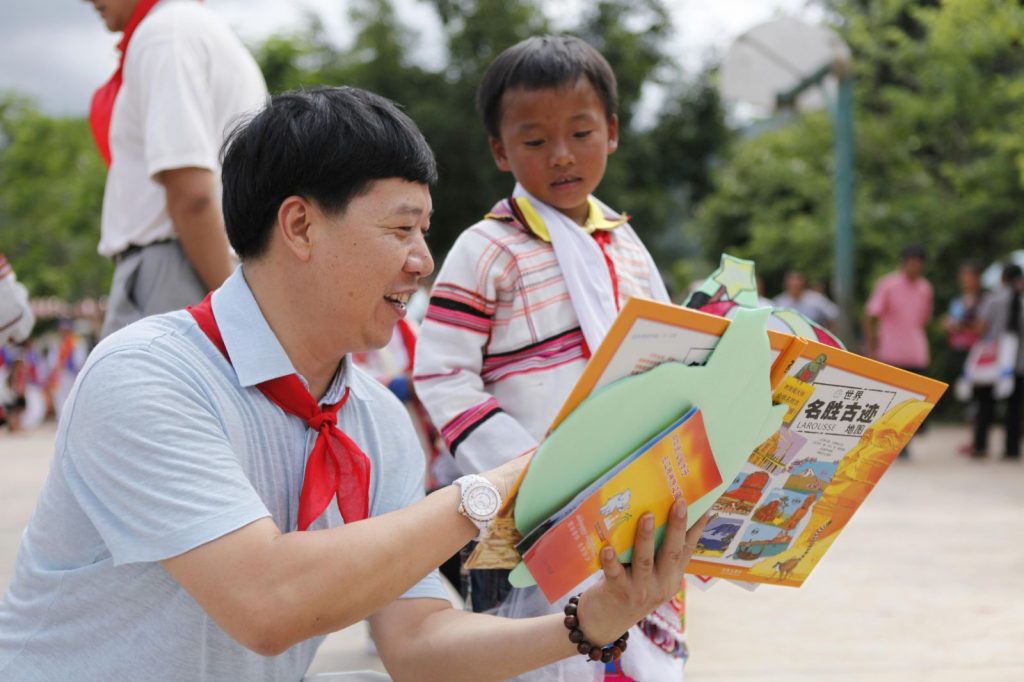The Financial Times (FT) has recognized the academic work of two professors from Cheung Kong Graduate School of Business (CKGSB) in a global listing of ‘Business School Research with Social Impact.’ In fact, two of the three contributions from Asian business schools featured on the FT’s list for high social impact research came from CKGSB professors. It includes Professor of Marketing Zhu Rui’s paper, “Experiencing Haptic Roughness Promotes Empathy” from the Journal of Consumer Psychology, which shows that incidental exposure to haptic sensation of roughness can facilitate empathy, and Professor of Strategy and Economics Brian Viard’s paper, “The Impact of Beijing Driving Restrictions on Pollution and Economic Activity” from the Journal of Public Economics, which evaluates the pollution and labor supply reductions from Beijing’s driving restrictions.
Dr. Viard says, “I was pleased to hear that my paper with Shihe Fu was included in the Financial Times list of academic papers with social impact. In the paper we look at one of the more prevalent environmental policies that China has employed to combat air pollution. There are now at least a dozen major cities in China that use driving restrictions in an attempt to reduce car usage and therefore pollution (in the city we examine automobiles contribute approximately 50% of PM10, the air pollutant we examine). These restrictions prevent some cars from driving each day generally based on the last digit of their license plate number. The goal of our paper was to provide policymakers with evidence on whether these driving restrictions are effective in reducing pollution and also to evaluate an important component of their costs. To do so we looked at China’s first implementation of these restrictions – in Beijing in 2008. We find that the driving restrictions did help reduce PM10. This is good news as PM10 pollution consists of small particulates that can enter the blood stream through the lungs and cause respiratory and cardiovascular problems. However, the policy also had a cost. It reduced the number of hours that people worked for those who had discretion over their work time (e.g., the self-employed). On restricted days, such workers either have to find alternative, more costly transport to work or avoid working. We found that a significant number of workers chose not to work. Since we had no way of observing how many hours these people work, we detected this by using the number of hours these types of workers watched television when the restrictions went into effect – it went up during work hours. Our paper provided a quantification of these benefits and costs that we hope are useful to policymakers evaluating these programs.”
Since its establishment, CKGSB has always gone beyond the traditional boundaries of business schools to take an active role in addressing some of humanity’s most pressing issues through its educational courses, its community culture, its research and its partnerships with private and public institutions. CKGSB was the first business school in China to incorporate the humanities into its core business curricula to give students a more holistic view of business. Social innovation is now also a required module for all degree programs at CKGSB. The aim of the school is to integrate social innovation with business innovation to address global issues, such as wealth inequality, social immobility and sustainability.

FT asked business schools to select up to five papers by their academics, published in the past five years, that they considered to have meaningful social impact. It then used Altmetric, a service owned by Digital Science, to quantify the online resonance that each had with the wider world beyond universities, drawing on references ranging from academic citations to social media posts.
To see the full FT list, please visit:
https://www.ft.com/content/5953739c-3b94-11ea-b84f-a62c46f39bc2